Navigating the Divorce Process
How Long Do You Have to Get Your Stuff After Divorce?
Yearning to reclaim your belongings post-divorce? Discover the intricate timelines and legal considerations that govern property retrieval after a marital split.

Once the turmoil of a divorce subsides, the issue of reclaiming personal possessions casts a looming shadow. You might wonder, how much time do we have to gather our belongings after the divorce is finalized?
The answer isn't always straightforward, and various factors come into play. Let's explore the nuances of property retrieval in the aftermath of a divorce, shedding light on the timelines, guidelines, and potential legal complexities that may arise.
Key Takeaways
- Establish a reasonable timeframe for property retrieval post-divorce.
- Communicate clearly with the ex-spouse to avoid misunderstandings.
- Seek legal advice to navigate property division complexities.
- Document items and communication to prevent disputes and ensure a smooth process.
Overview of Property Retrieval Post-Divorce

How efficiently can we handle retrieving our belongings after a divorce?
When it comes to personal property retrieval post-divorce, navigating this process can be complex but crucial. In Texas, there's no specific legal time frame outlined for retrieving belongings after a divorce. It's advisable to communicate clearly with your ex-spouse regarding the collection of personal items. Providing a reasonable time frame, typically around 30 days, for your ex-partner to retrieve their belongings is a common practice. To ensure a smooth process and avoid potential disputes, documenting the inventory and condition of the items can be beneficial.
Seeking guidance from a divorce attorney is highly recommended to understand your rights and obligations regarding property retrieval post-divorce. A divorce attorney can offer valuable insights into the legal aspects of personal property division and assist in obtaining a court order if necessary. By proactively addressing these matters with the help of legal counsel, you can navigate the property retrieval process with clarity and efficiency.
Understanding Timelines for Property Division

Understanding the timelines for property division in a divorce is crucial for ensuring a smooth and efficient process. While in Texas, there's no specific statutory timeline governing the retrieval of belongings post-divorce, parties often find it beneficial to establish a reasonable timeframe, commonly within 30 days, for this purpose.
In cases where the divorce decree or separation agreement lacks clarity on property division timelines, it's advisable to send a written notice with a deadline for retrieval to avoid any misunderstandings. Seeking legal advice from a knowledgeable family law attorney can provide valuable insights into the rights and responsibilities concerning property division timelines.
Guidelines for Retrieving Personal Property
When finalizing a divorce, it's important to adhere to the guidelines for retrieving personal property efficiently and in a timely manner. Here are essential points to consider:
- Review the Divorce Decree or Separation Agreement: These documents often outline the specific timeline and procedures for retrieving personal belongings post-divorce. Understanding these guidelines is crucial for a smooth process.
- Act Promptly Within the Designated Timeframe: In many cases, ex-spouses are expected to collect their personal items within around 30 days following the divorce. Failing to do so within this timeframe may lead to complications.
- Seek Legal Guidance if Needed: If you find the guidelines confusing or need clarification on your rights and responsibilities regarding personal property retrieval, consulting with a legal professional specializing in family law can provide you with the necessary assistance and peace of mind.
Adhering to these guidelines will help ensure a seamless retrieval of personal belongings and prevent any potential disputes or issues in the future.
Navigating Post-Divorce Property Retrieval

Reviewing the guidelines for retrieving personal property post-divorce lays the foundation for successfully navigating the process of post-divorce property retrieval.
In Texas, the absence of a specific statutory timeline for this task necessitates establishing a reasonable timeframe for the ex-spouse to collect their belongings.
If faced with delays or non-compliance, one may need to file a motion to address the issue formally.
Seeking legal advice specific to your situation is crucial, especially if uncertainties arise during the property retrieval process.
It's advisable to document all communication with your ex regarding property retrieval to ensure clarity and legal protection.
Professional guidance can help streamline the retrieval process, particularly in cases involving complex assets like the marital home.
Optimizing Property Retrieval Post-Divorce
To optimize the property retrieval process post-divorce, consider sending a final written notice to your ex regarding the collection of belongings. When dealing with property division, it's crucial to handle the process efficiently and respectfully. Here are three key steps to help streamline property retrieval post-divorce:
- Establish a Reasonable Timeframe: Setting a clear timeline for your ex to collect their belongings can prevent misunderstandings and delays. This proactive approach can help both parties move forward smoothly.
- Document Inventory and Condition: Keeping a detailed record of the items being retrieved and their condition is essential. This documentation can serve as evidence in case of any legal disputes that may arise during the property retrieval process.
- Consult a family law attorney: Seeking guidance from a family law attorney can provide valuable insights into your rights and options regarding property division post-divorce. Legal expertise can help navigate any complexities and ensure a fair outcome for all parties involved.
Frequently Asked Questions
How Long Do I Have to Keep My Ex Wife's Belongings?
We should consider the content of the separation agreement or seek legal advice if unsure about the timeframe for storing our ex-wife's items post-divorce. Sending a 30-day demand letter might prompt her to collect them promptly.
Can I Get My Stuff Back After a Divorce?
We can retrieve our belongings after divorce by communicating with the ex-spouse for a reasonable timeline. Legal guidance can clarify rights. Documenting attempts is wise for evidence. If disputes persist, sending a final notice or seeking court orders may be necessary.
Can I Take Furniture When I Leave My Husband?
We can take furniture when leaving a spouse, but it's wise to reach an agreement. Legal advice may be needed if disputes arise. Ensuring a smooth property division process minimizes future complications and fosters a fair outcome.
What to Do if Your Ex Won't Pick up His Stuff?
If your ex won't retrieve belongings, communicate clearly and give reasonable notice. Seek legal advice if needed. Proper documentation is crucial. Failure to address this issue can lead to legal disputes and consequences.
Conclusion
In the tangled web of post-divorce property retrieval, time slips away like sand through our fingers. It's crucial to grasp the importance of swift action, clear communication, and meticulous documentation.
Like a skilled navigator, we must chart our course with precision and determination to reclaim what's rightfully ours. Remember, the clock is ticking, and our belongings await their return to our arms.
Allison is the driving force behind our content, ensuring that every piece of information we share is both empowering and insightful. With a keen eye for detail and a deep understanding of the divorce process, Allison curates content that speaks directly to the needs of our audience. Her expertise ensures that How Get Divorce remains a trusted and authoritative source of guidance for those navigating the difficult waters of divorce.
Navigating the Divorce Process
How Long Does It Take to Get a Divorce in New York: A Comprehensive Guide
Yearning to unravel the mystery behind divorce timelines in New York? Dive into this comprehensive guide for surprising insights and essential information.

In navigating the maze of divorce proceedings in New York, one can't help but wonder about the elusive factor that determines the timeline of this significant life event. Understanding the intricacies of the legal system and the unique dynamics of each case sheds light on the complexities that dictate the speed at which a divorce can be finalized.
As we explore the various facets of this process, a clearer picture emerges, revealing essential insights that may surprise even the most seasoned individuals in the realm of family law.
Key Takeaways
- Residency requirements influence divorce eligibility in New York.
- Contested divorces typically take 9 months to a year to finalize.
- Choice of fault or no-fault grounds impacts divorce timeline.
- Utilizing online services and mediation can expedite the divorce process.
Residency Requirements and Filing Procedures
Navigating the intricate process of divorce in New York begins with understanding the residency requirements and filing procedures in place. In New York, one spouse must fulfill the one-year residency requirement to initiate divorce proceedings, regardless of fault or no-fault grounds. Complying with state laws, this residency mandate is fundamental in determining eligibility for divorce.
The one-year residency in New York is a pivotal criterion, setting the stage for the entire divorce process. Without meeting this requirement, individuals may face obstacles when attempting to file for divorce. Understanding and adhering to the residency requirement is crucial for a smooth and efficient divorce process in New York.
Types of Divorce Processes in NY
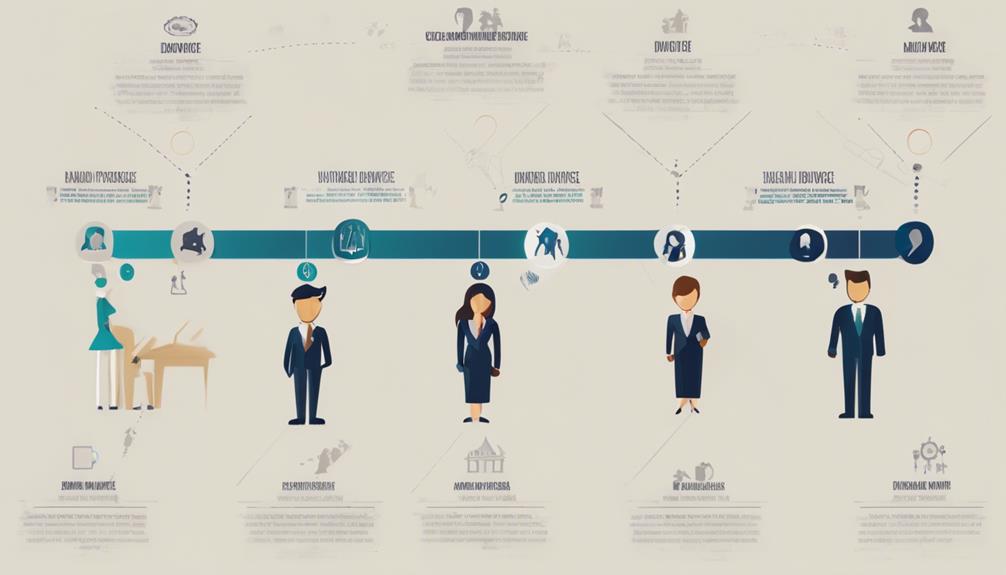
When considering the types of divorce processes in New York, it's essential to understand that they can be broadly categorized as contested or uncontested.
- Contested Divorce Take: Contested divorces in New York typically take between 9 months to a year to finalize due to disagreements over various aspects such as assets division and child custody.
- Uncontested Divorce Take: On the other hand, uncontested divorces generally move faster than contested ones, often concluding in a shorter timeframe.
- Factors Affecting Divorce Process: The length of time for divorce proceedings in New York can be influenced by factors like the level of cooperation between the parties, the complexity of asset division, and the resolution of child custody arrangements. Understanding these distinctions is crucial for individuals navigating the New York divorce process efficiently.
Factors Impacting Divorce Timeline
Understanding the various factors that impact the timeline of a divorce in New York is essential for individuals going through the process. In New York, the choice of fault or no-fault grounds can significantly influence the length of the divorce proceedings.
Additionally, factors such as legal separation status, involvement of minor children, the number of shared assets, the duration of marriage, and the willingness to resolve amicably all play a critical role in determining how long a divorce may take. Disputes over property division and child custody can also lead to prolonging the divorce case.
Opting for alternative dispute resolution methods like mediation can help expedite the process, along with ensuring all necessary paperwork is in order. Seeking legal advice and collaborating with the spouse can further streamline the proceedings.
Considering these factors can help individuals navigate the waiting period and facilitate a smoother resolution in their divorce in New York.
Court Proceedings and Waiting Periods
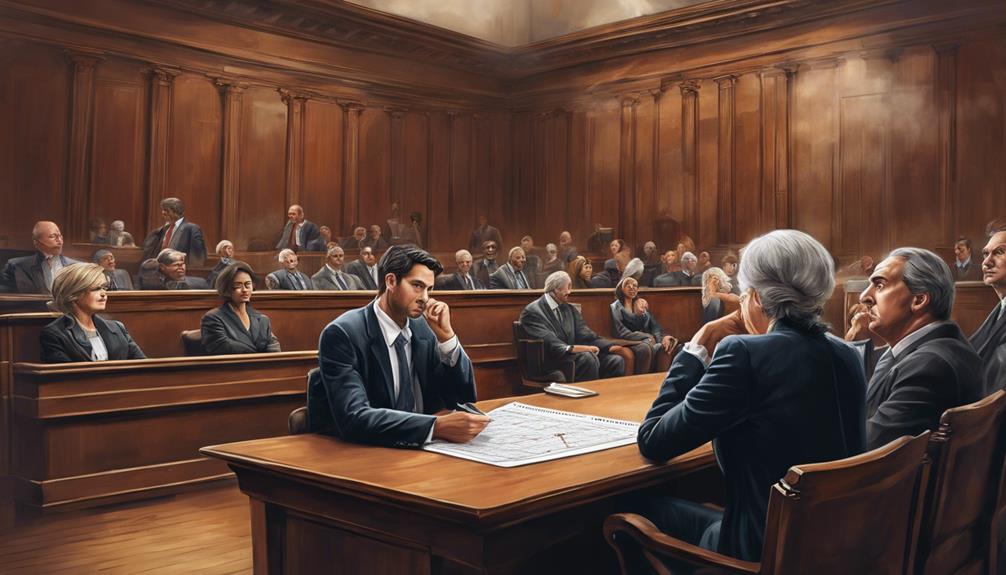
Court proceedings in New York encompass a varying timeline, typically culminating in about 3 months for uncontested divorces to reach finalization. When navigating divorce proceedings in New York, it's crucial to understand the nuances of the legal system. Here are key points to consider:
- Court Backlog: The backlog in New York courts can result in waiting periods of 6 months to a year for final divorce judgments, impacting the overall timeline of the process.
- Request for Judicial Intervention (RJI): Filing an RJI triggers court intervention and scheduling of a Preliminary Conference, which sets the stage for the legal procedures to follow, influencing the pace of the divorce proceedings.
- Property Division: Disputes over property division can prolong court proceedings, leading to extended litigation and delays in reaching a final resolution. Cooperation between legal teams is essential to streamline the process and avoid unnecessary setbacks.
Understanding these aspects is crucial for managing expectations and effectively navigating divorce proceedings in New York.
Streamlining the Divorce Process
To expedite the divorce process in New York, considering streamlined options such as uncontested divorce or online services can significantly reduce the time required for resolution. Uncontested divorce, where both parties agree on all terms, can lead to a quicker finalization, sometimes taking as little as 2-3 months. Online divorce services are another efficient route, simplifying paperwork and procedures, ultimately expediting the process.
Ensuring the swift and accurate handling of paperwork and agreements is crucial in speeding up the divorce proceedings. Opting for mediation or collaborative divorce methods can also streamline the resolution timeline by fostering open communication and negotiation between the parties involved.
Frequently Asked Questions
How Long Does It Take for a Divorce to Be Finalized in New York?
It can take varying durations for a divorce to be finalized in New York, influenced by factors like uncontested or contested status, agreement between parties, and court scheduling. These elements significantly impact the timeline.
How Can I Get a Quick Divorce in Ny?
Getting a quick divorce in NY is like a well-orchestrated dance: smooth and efficient. By staying cooperative, preparing thoroughly, and seeking legal aid when needed, spouses can expedite the process, potentially finalizing it in weeks.
What Happens After Divorce Papers Are Filed in New York?
After divorce papers are filed in New York, the respondent must be served within 120 days. They then have 20 days to respond if in-state, or 30 days if out-of-state. Failure to respond leads to an uncontested divorce.
Do You Have to Be Separated for a Year to Get a Divorce in Ny?
We don't need to be separated for a year in New York to get a divorce. The state offers a no-fault option based on an irretrievable breakdown of the marriage, eliminating the mandate for a lengthy separation period.
Conclusion
As we navigate the intricate paths of divorce in New York, we find that time isn't merely a measure of days and months, but a symbol of growth, healing, and transformation.
The process may be complex and challenging, but it also offers opportunities for resolution and closure. By understanding the factors at play and actively participating in the proceedings, we can streamline the journey towards a new chapter in our lives with compassion and clarity.
Allison is the driving force behind our content, ensuring that every piece of information we share is both empowering and insightful. With a keen eye for detail and a deep understanding of the divorce process, Allison curates content that speaks directly to the needs of our audience. Her expertise ensures that How Get Divorce remains a trusted and authoritative source of guidance for those navigating the difficult waters of divorce.
Navigating the Divorce Process
How to Get Your Attorney Fees Paid in a Divorce
In navigating divorce, understanding how to secure payment for attorney fees is crucial, but what happens if you miss a critical step?

Navigating through the intricacies of divorce, making sure you have your legal fees covered is an essential component of the process. For example, in some areas, like Texas, it’s crucial to incorporate a formal plea for the payment of fees in your initial divorce filing.
But what happens if this step is overlooked or not done correctly? Understanding the underlying principles and legal strategies that influence the payment of attorney fees in a divorce can significantly impact the outcome of your case.
Let's explore the nuances of getting your attorney fees paid in a divorce and the strategic approaches that can help secure financial assistance for legal representation.
Key Takeaways
- Request interim attorney fees based on financial need during divorce.
- Judges can order fee payments from community assets or spouse's income.
- Discuss financial situation openly to negotiate fair attorney fee payment.
- Consider alternative payment sources like selling assets or incurring debt.
Legal Options for Attorney Fees
When facing the financial burden of attorney fees in a divorce, understanding the legal options available is crucial for securing fair representation. In a community property state like Texas, spouses may be entitled to have their attorney fees paid from community assets.
Interim attorney fees can also be requested during the divorce proceedings to ensure both parties have access to legal representation. It's essential to seek legal assistance to navigate the complexities of these financial matters.
Judges have the authority to order payment of attorney fees based on the ability to pay from community assets. They carefully assess the reasonableness of the fees requested and may order payment from various sources. Methods to pay one's spouse's attorney fees can include making periodic payments from income, selling nonliquid property, or even incurring debt if necessary.
Ensuring that attorney fees are addressed promptly and fairly is crucial, especially in cases involving child custody where legal representation is vital for protecting one's rights.
Factors Influencing Fee Payment
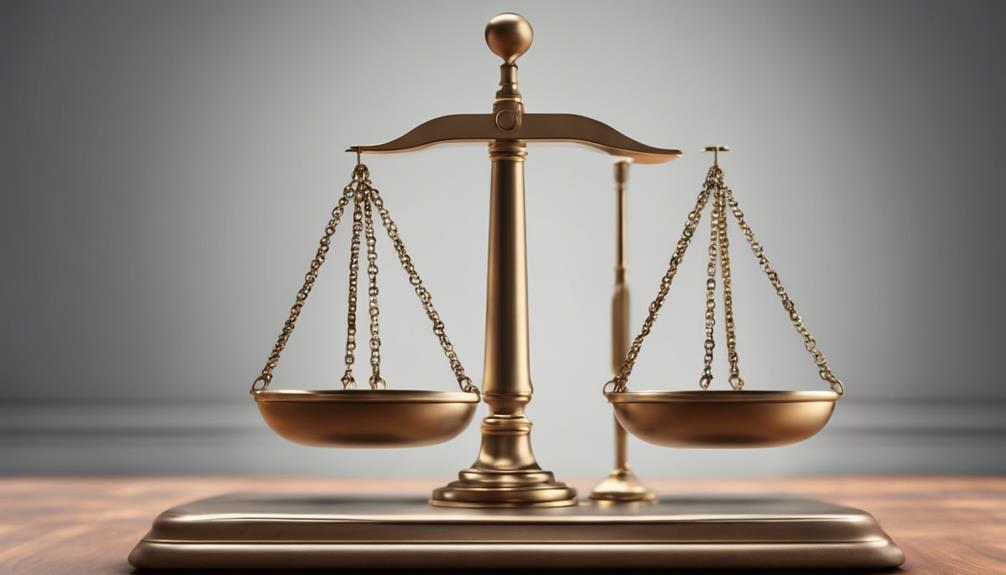
Considering the financial dynamics at play in a divorce, various factors come into play when determining the payment of attorney fees, with the court weighing the financial standing of both parties as a critical influencer in the decision-making process. In Texas, attorney fees are considered community property until the divorce is finalized. Interim fees can be requested during the ongoing divorce process based on financial need. It's crucial to note that bad faith actions like hiding assets or non-compliance with court orders can lead to one spouse being responsible for paying the other's attorney fees. Additionally, judges may order one spouse to pay the other's fees to ensure equal access to legal representation. Fairness and equal representation are significant considerations for the court when making payment determinations regarding attorney fees in a divorce. Below is a table summarizing the key factors influencing fee payment:
| Factors | Influence on Fee Payment |
|---|---|
| Financial Status | Critical consideration |
| Bad Faith Actions | Responsibility for fees |
| Interim Fees | Based on financial need |
| Equal Representation | Ensuring fairness |
| Court Orders | Compliance importance |
Financial Considerations and Strategies
Understanding the financial implications and implementing effective strategies play a crucial role in navigating the payment of attorney fees during a divorce. It's important for both spouses to consider the financial status of each party when requesting payment of attorney fees.
In the legal realm, judges have the authority to order one spouse to pay the other's attorney fees based on just and right division principles. Temporary fees can be sought through a Motion for Interim Attorney Fees to cover ongoing legal costs. Spouses may need to provide justification for the reasonableness of the fees requested by their attorneys.
Exploring alternative payment sources, such as selling nonliquid assets or incurring debt, can be viable strategies to cover attorney fees during the divorce process. By being mindful of the financial aspects and leveraging available legal options, both parties can work towards a fair resolution in the payment of attorney fees.
State-Specific Laws and Resources
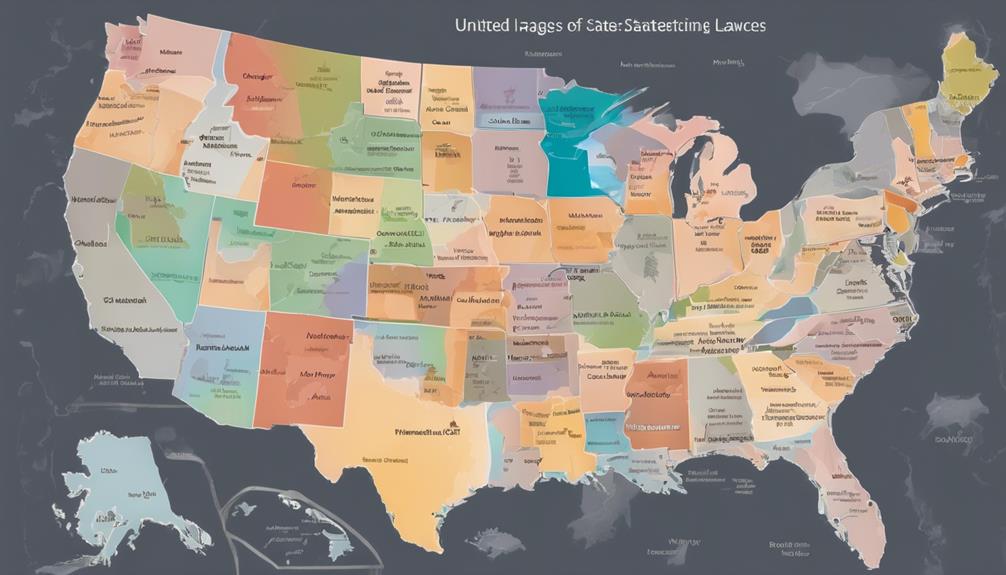
Navigating the intricacies of divorce laws and available resources in your state can significantly impact the outcome of attorney fee payments. In Texas, understanding the state-specific laws related to attorney fees is crucial for a successful divorce process. Here are some key points to consider:
- Attorney fees: In Texas, attorney fees can be requested in the original petition for divorce.
- Financial status: Texas courts take into account the financial status of both parties when determining attorney fee payments.
- Income disparity: Judges may order one spouse to pay the other's attorney fees in cases of significant income disparity.
- Bad behavior: Engaging in bad behavior during the divorce process, like hiding assets or not complying with court orders, can result in paying the other party's attorney fees.
- Interim fees: Interim attorney fees can be requested to ensure legal representation for both parties throughout the divorce process.
Understanding these nuances can help you navigate the legal landscape effectively and secure fair attorney fee payments in Texas courts.
Negotiating Attorney Fees Efficiently
Let's smoothly shift our focus to efficiently negotiating attorney fees by strategizing smartly and communicating effectively during the divorce process. When dealing with attorney fees, it's crucial to discuss your financial situation openly with your legal representative to assess if your spouse can be held accountable for covering these costs. Providing evidence of your spouse's higher income or financial advantage can strengthen your case for them to pay your attorney fees. Negotiation plays a key role here; aim to reach a mutual agreement with your spouse or their attorney on sharing or covering the attorney fees to prevent court intervention. Be ready to justify the reasonableness of the fees and expenses incurred during the process. If your spouse is unwilling or unable to cover these costs, explore alternative payment arrangements like selling assets or securing a loan. Efficient negotiation is the cornerstone of getting your attorney fees paid in a divorce.
| Efficient Negotiation Tips | |
|---|---|
| Discuss Financial Situation | Provide Evidence of Spouse's Higher Income |
| Negotiate with Spouse | Justify Attorney Fees & Expenses |
| Consider Alternative Payments | Avoid Court Intervention |
Frequently Asked Questions
Who Loses the Most in a Divorce?
In a divorce, the spouse with higher income or more assets may bear more legal fees. Financial disparities impact who shoulders expenses. Court decisions consider income and assets. Fair representation access involves financial need and conduct influences fees responsibility.
Can My Spouse Make Me Pay Her Divorce Attorney Fees in Texas?
We understand the concern about spouses making each other pay attorney fees in Texas. Financial circumstances, assets, and behavior influence this decision. It's crucial to address attorney fees in the original petition for the court to consider them.
Who Pays for a Divorce in Texas?
We share insights on who pays for a divorce in Texas based on financial circumstances and court orders. Factors like income and assets influence fee payments. Community property laws affect division. Seeking temporary fees through a Motion for Interim Attorney Fees can assist.
How to Get a Free Divorce in Texas?
Getting a free divorce in Texas isn't possible, but cost-reducing options exist. Seek assistance from county legal clinics, pro bono services, or apply for fee waivers. With diligence, affordability in divorce proceedings can be achieved.
Conclusion
In the journey of divorce, remember: 'You get what you pay for.' By seeking legal guidance and understanding your options for attorney fee payment, you can navigate this challenging time with confidence and support.
Don't let financial concerns hold you back from obtaining the representation you deserve. Stay informed, stay proactive, and remember that your well-being is worth the investment in quality legal assistance.
Allison is the driving force behind our content, ensuring that every piece of information we share is both empowering and insightful. With a keen eye for detail and a deep understanding of the divorce process, Allison curates content that speaks directly to the needs of our audience. Her expertise ensures that How Get Divorce remains a trusted and authoritative source of guidance for those navigating the difficult waters of divorce.
Navigating the Divorce Process
How Much Does It Cost to Get a Divorce in Florida: a Complete Guide
Open the door to understanding the intricate costs of divorce in Florida for a couple with assets and complex custody, revealing surprising insights.
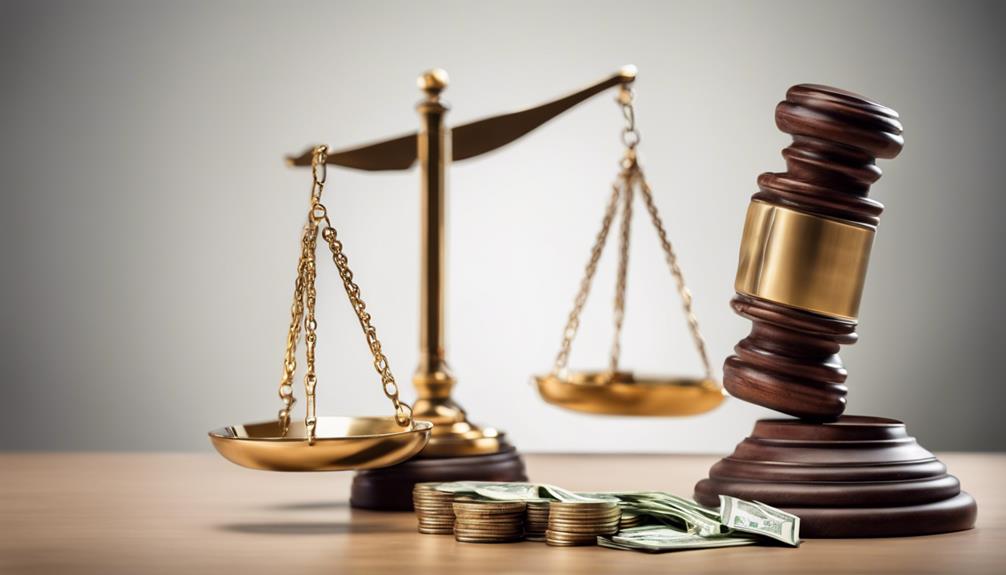
Imagine a scenario in which a couple, who owns considerable assets and has a complicated arrangement for child custody, opts to file for divorce in Florida. The financial impact of this situation can be significant, leading to inquiries regarding the overall costs and the strategies for managing them efficiently.
Understanding the breakdown of costs, from legal fees to court expenses, is crucial for anyone navigating the divorce process in Florida. By exploring the nuances of divorce costs in the state and the various factors that influence them, individuals can make informed decisions about their next steps in this challenging process.
Key Takeaways
- Divorce costs in Florida range from $5,000 to $30,000, influenced by various factors.
- Uncontested divorces cost under $500 for DIY paperwork or up to $5,000 with lawyer assistance.
- Contested divorces in Florida can range from thousands to tens of thousands of dollars.
- Hiring a divorce lawyer in Florida averages $300 per hour, impacting overall divorce expenses.
Average Cost of Divorce in Florida
When considering the average cost of divorce in Florida, it's essential to understand the varying factors that can significantly impact the overall expenses involved.
In Florida, the average cost of divorce ranges between $5,000 and $30,000. This range is influenced by various factors such as marital property, debts, presence of children under 18, alimony requests, attorney fees, and the duration of legal proceedings.
The financial implications of divorce can be substantial, especially when legal representation is needed. On average, lawyers in Florida charge around $300 per hour, which can quickly add up throughout the divorce process.
Additionally, the willingness of both spouses to compromise and the decision to hire experts for evaluations can also affect the total cost of divorce.
Understanding these financial considerations and planning accordingly can help spouses navigate the complexities of divorce in Florida more effectively.
Uncontested Divorce Costs in Florida

How do uncontested divorce costs in Florida compare to traditional legal proceedings? In Florida, uncontested divorce costs can vary significantly depending on the approach taken. Here is a breakdown of the costs associated with uncontested divorces in Florida:
| Aspect | Cost Range | Details |
|---|---|---|
| DIY Paperwork | Under $500 | Can be a cost-effective option for couples in agreement. |
| Lawyer Assistance | $3,000-$5,000 | Hiring a lawyer can provide legal guidance but at a higher cost. |
| Filing Fees | $408-$409 | Required fees for filing the divorce paperwork with the court. |
| Online Services | Under $650 | Online services offer a middle ground in terms of cost and assistance. |
Factors such as mutual agreement between spouses and minimal court involvement contribute to the lower costs of uncontested divorces in Florida. Additionally, individuals who cannot afford traditional legal fees may explore options like the Application for Determination of Indigent Status to help reduce costs.
Contested Divorce Expenses in Florida
Contested divorce expenses in Florida can vary significantly based on the complexity of the case, ranging from several thousand dollars to tens of thousands. When navigating a contested divorce in Florida, individuals may encounter various costs that contribute to the overall financial implications of the legal process. Some key factors influencing the contested divorce cost include:
- Expert Witnesses: In cases requiring specialized knowledge, such as child custody evaluations or financial assessments, the involvement of expert witnesses can escalate expenses.
- Property Division: Evaluating and dividing assets in a contested divorce often involves hiring appraisers to determine the value of properties, businesses, or other shared assets.
- Court Filing Fees: Alongside attorney fees, court filing fees and document serving costs are essential components that impact the total expenses of a contested divorce in Florida.
Understanding these financial issues is crucial for individuals going through a contested divorce, as it helps in anticipating and managing the costs associated with the legal proceedings.
Cost of Divorce Lawyer in Florida
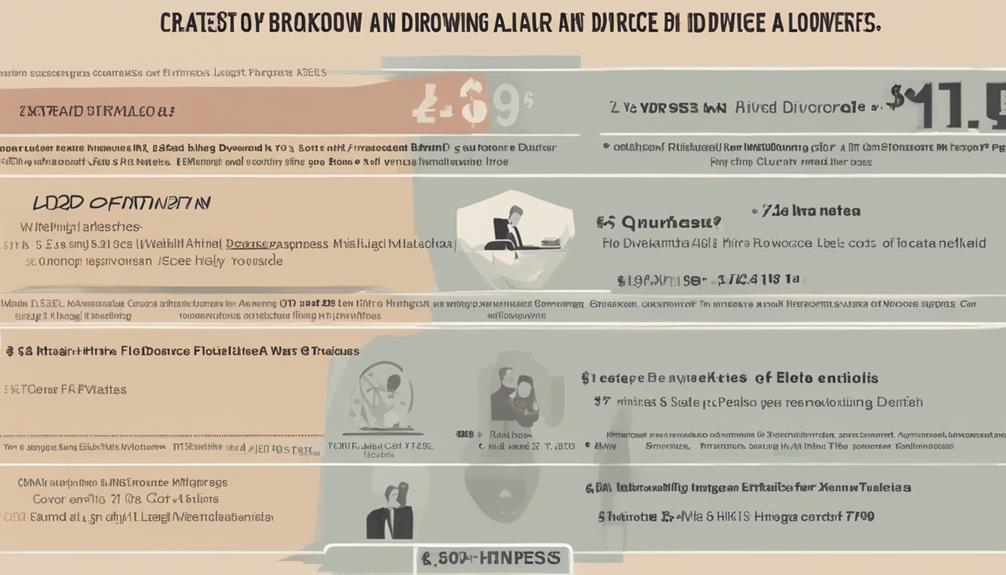
Divorce lawyer fees in Florida typically range from an average hourly rate of $300, with retainer fees falling between $2,000 and $5,000. Attorney fees in the state can vary between $260 and $330 per hour, depending on various factors such as case complexity, assets involved, and whether there are children in the picture.
It's essential to consider these aspects when budgeting for legal representation during a divorce. Additionally, Florida law mandates transparency in the types of retainers lawyers use when hired for divorce cases. This transparency ensures that clients understand how their money is being allocated throughout the legal process, offering a level of reassurance during what can be a challenging time.
When navigating the court system, filing paperwork, and advocating for your rights, having a knowledgeable and compassionate attorney by your side can make a significant difference in the outcome of your case.
Factors Affecting Florida Divorce Costs
Considering the multiple facets involved in divorce proceedings, understanding the factors that influence the costs in Florida is crucial for individuals embarking on this legal journey. When it comes to Florida divorce costs, several key elements play a significant role:
- Child Custody and Support: Disputes regarding child custody, visitation rights, and child support can escalate legal fees due to the complexity and emotional nature of these issues.
- Alimony: Claims for alimony can substantially impact the overall expenses of a divorce in Florida, especially if there are disagreements over the amount and duration of support.
- Property Division: Complex property and debt issues often lead to higher divorce costs in Florida, as the equitable distribution of assets requires meticulous evaluation and negotiation.
These factors, along with the need for expert witnesses, hourly rates charged by attorneys, and court costs, all contribute to the financial matters that individuals face when navigating a divorce in Florida. Understanding these influences can help individuals prepare for the potential costs associated with their divorce proceedings.
Frequently Asked Questions
How Much Does It Cost to Get a Divorce in Florida if Both Parties Agree?
If both parties agree, a divorce in Florida can cost less, with DIY paperwork under $500 and online help under $650. Legal assistance typically ranges from $3,000 to $5,000, while filing fees are around $408 to $409.
What Is the Cheapest Way to Get a Divorce in Florida?
Getting a divorce in Florida on a budget? Opting for an uncontested divorce is your best bet. With costs under $500 for DIY paperwork or around $650 with online assistance, it's a cost-effective solution for separations.
How Much Is the Filing Fee for Divorce in Florida?
The filing fee for divorce in Florida ranges from $408 to $409. It's a mandatory cost for initiating the process in Florida courts, covering paperwork processing. Budgeting for this fee is crucial to avoid delays in proceedings.
Can My Spouse Make Me Pay Her Divorce Attorney Fees in Florida?
We understand the concern about spousal payment for attorney fees in Florida. Courts may order one spouse to cover the other's fees based on need and ability to pay. Consulting an attorney for personalized guidance is crucial.
Conclusion
In conclusion, navigating the costly waters of divorce in Florida can be a challenging journey. Despite our best efforts to keep expenses low, the irony is that the emotional and financial toll can often exceed our expectations.
Remember to tread carefully, seek guidance when needed, and prioritize finding a resolution that's both fair and affordable. The price of divorce may be steep, but the cost of peace of mind is priceless.
Allison is the driving force behind our content, ensuring that every piece of information we share is both empowering and insightful. With a keen eye for detail and a deep understanding of the divorce process, Allison curates content that speaks directly to the needs of our audience. Her expertise ensures that How Get Divorce remains a trusted and authoritative source of guidance for those navigating the difficult waters of divorce.
-

 Life After Divorce2 months ago
Life After Divorce2 months agoTD Jakes: Life After Divorce – A Journey of Healing
-

 Navigating the Divorce Process2 months ago
Navigating the Divorce Process2 months agoNavigating the Complexity: Divorce Document Preparation Services Explained
-

 Financial Aspects2 months ago
Financial Aspects2 months agoFinancial Advisor's Guide to Navigating Divorce Finances
-

 Supporting Children Through Divorce2 months ago
Supporting Children Through Divorce2 months agoPositive Effects of Divorce on Children: A Guide to Understanding
-

 Navigating the Divorce Process2 months ago
Navigating the Divorce Process2 months agoDivorce Lawyers New Orleans: Your Ultimate Guide to Legal Separation and Family Law
-

 Navigating the Divorce Process2 months ago
Navigating the Divorce Process2 months agoNavigating Divorce with a Muslim Divorce Lawyer
-
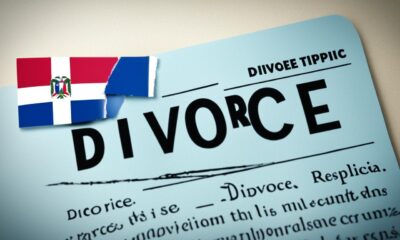
 Navigating the Divorce Process2 months ago
Navigating the Divorce Process2 months agoUnderstanding Dominican Republic Divorce Law
-

 Directory2 months ago
Directory2 months agoCompassionate Vista Divorce Attorney | Family Law Help









































